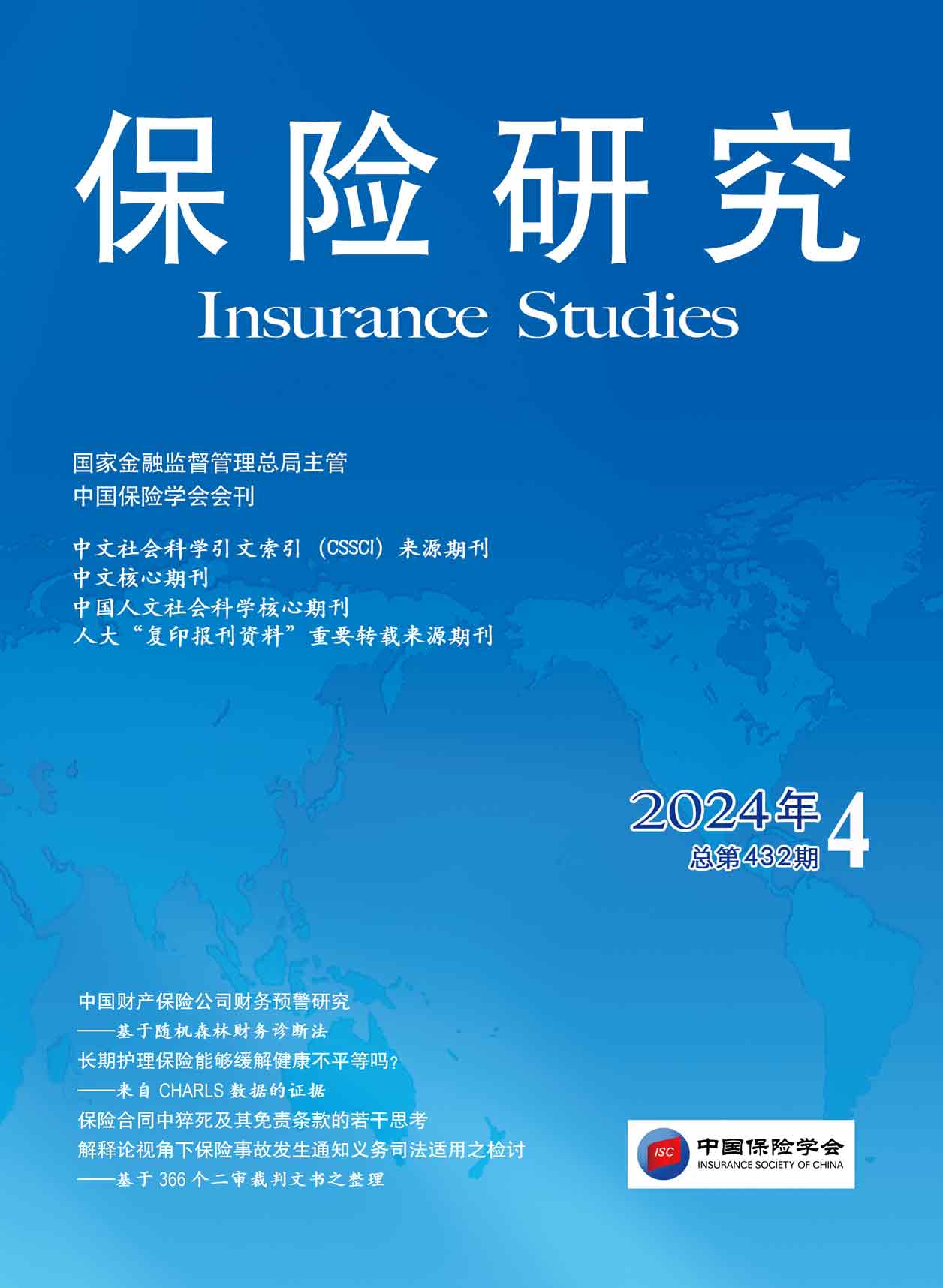
《保险研究》20240409-《解释论视角下保险事故发生通知义务司法适用之检讨——基于366个二审裁判文书之整理》(张力毅)
[中图分类号]D922.284[文献标识码]A[文章编号]1004-3306(2024)04-0112-16 DOI:10.13497/j.cnki.is.2024.04.009
资源价格:30积分
- 内容介绍
[摘 要]基于对保险法中最大诚信原则、对价平衡原则与民法中不真正义务理论的贯彻,《保险法》第21条确立了被保险人、投保人、受益人在保险事故发生后对于保险人的通知义务,但也对义务人主观诚信的践行程度和保险人可以主张免责之范围都做出了可能的限定。如对司法裁判进行整理,我们可知司法实践对于保险事故发生通知义务的适用前提、适用条件以及适用后果等问题仍存在争议,此外裁判者在面对法律适用疑难问题时对于法学方法论的运用也不自觉。在既有的解释论框架下有必要通过法律解释(限缩解释与目的解释)、制定法内的法律续造(类推适用与目的性限缩)、不确定法律概念与一般条款的价值补充这些几乎全套方法论的运用来解决上述司法实践中之难题。
[关键词]保险事故发生通知义务;最大诚信;对价平衡;不真正义务;法学方法论
[基金项目]教育部人文社会科学研究青年基金项目“投保人(被保险人)保险法上不真正义务群的现代化改造研究”(项目编号:18YJC820087)。
[作者简介]张力毅,南京大学法学院副教授,法学博士,主要研究方向为保险法、破产法。
The Review on the Judicial Application of the Duty of Loss Notice in the Perspective of the Interpretation Theory—Based on the Carding of 366 Written Judgments of Second Instance
ZHANG Li-Yi
Abstract:Abstract:Based on the principle of utmost good faith,the principle of equilibrium between premium and coverage in insurance law and the theory of unreal obligation in civil law,the Article 21 of the Chinese Insurance Law stipulates that the policyholder,the insured and the beneficiary bear the duty of loss notice,but the obligator′s performance degree of good faith and the scope of exemption is limited.We can find that disputes still exist on the applicable premises,conditions and results of the duty of loss notice in juridical practice.What′s more,the judges can not apply the methodology of jurisprudence to practice consciously when they are faced with difficult problems.In order to solve the problems under the framework of legal dogmatic,we can make use of the entire set of methodology of jurisprudence like legal explanation (such as teleological interpretation and restrictive interpretation),the creation of law within the existing legal system (such as application of analogy and purposeful limitation) and the concretion of uncertain legal concept together with general clause.
Key words:Key words:the duty of loss notice;utmost good faith;principle of equilibrium between premium and coverage;unreal obligation;methodology of jurisprudence
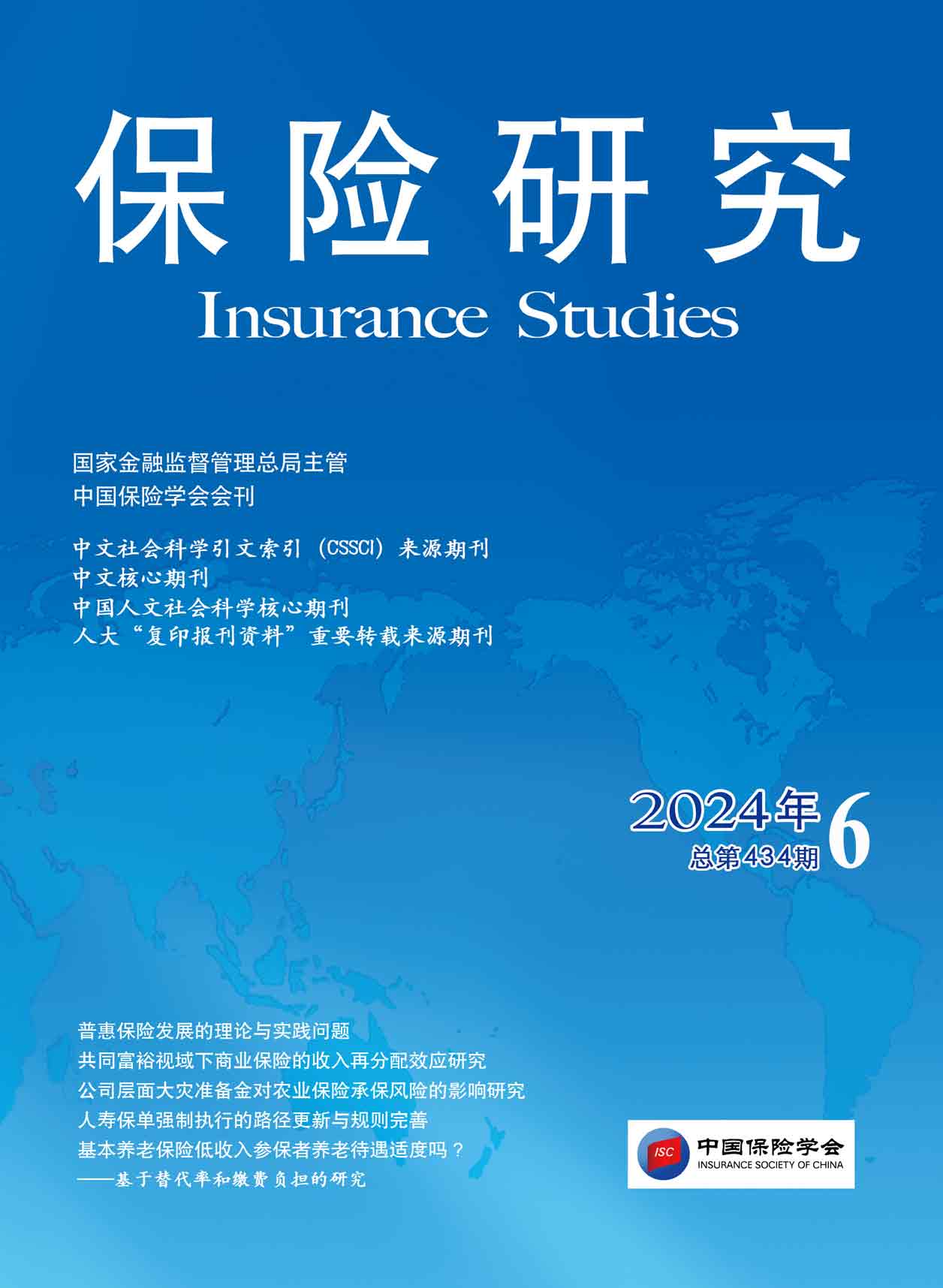
《保险研究》20240601-《普惠保险发展的理论与实践问题》(陈秉正、毛羽)
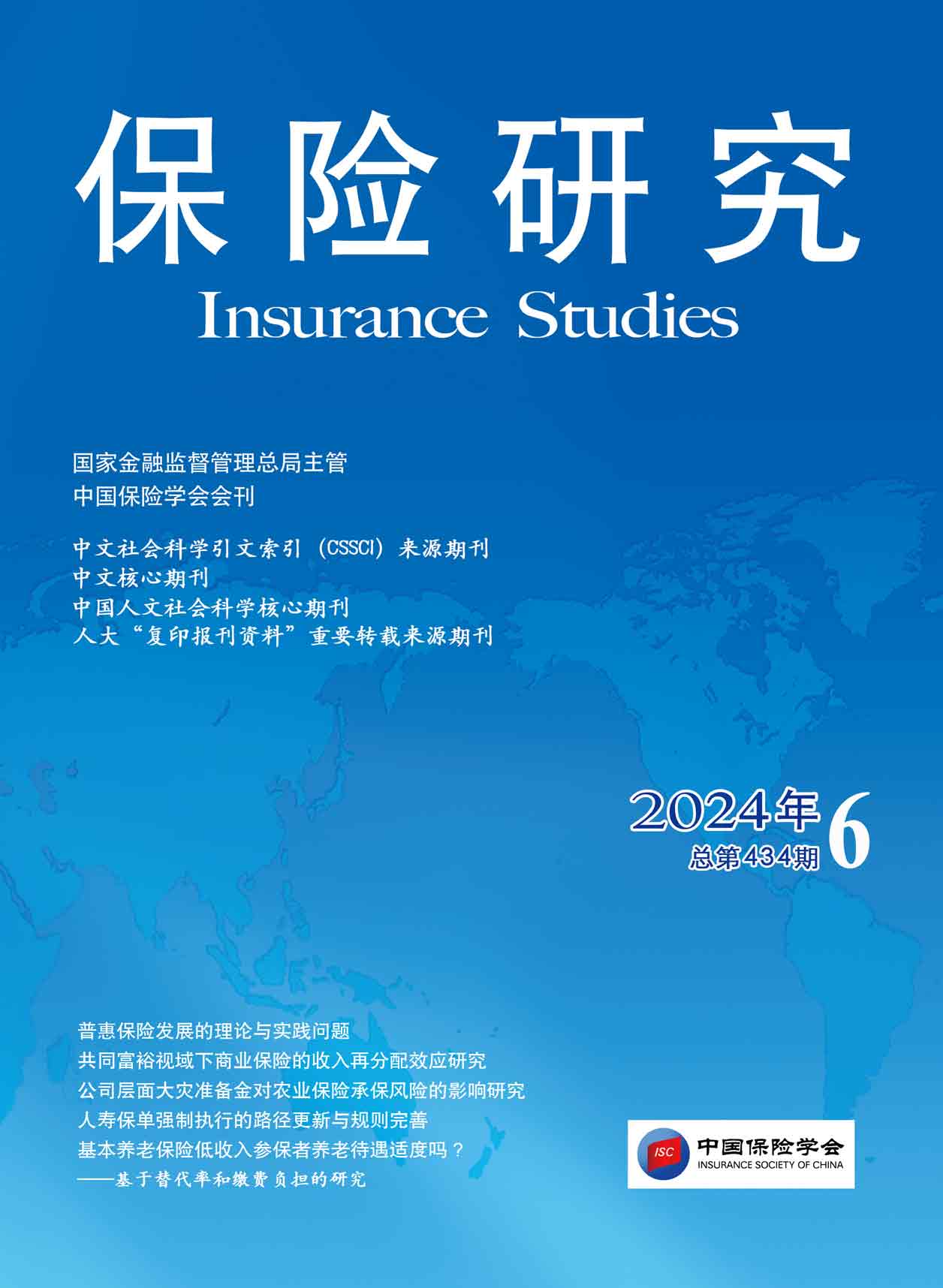
《保险研究》20240602-《共同富裕视域下商业保险的收入再分配效应研究》(张宗军、党新宇)
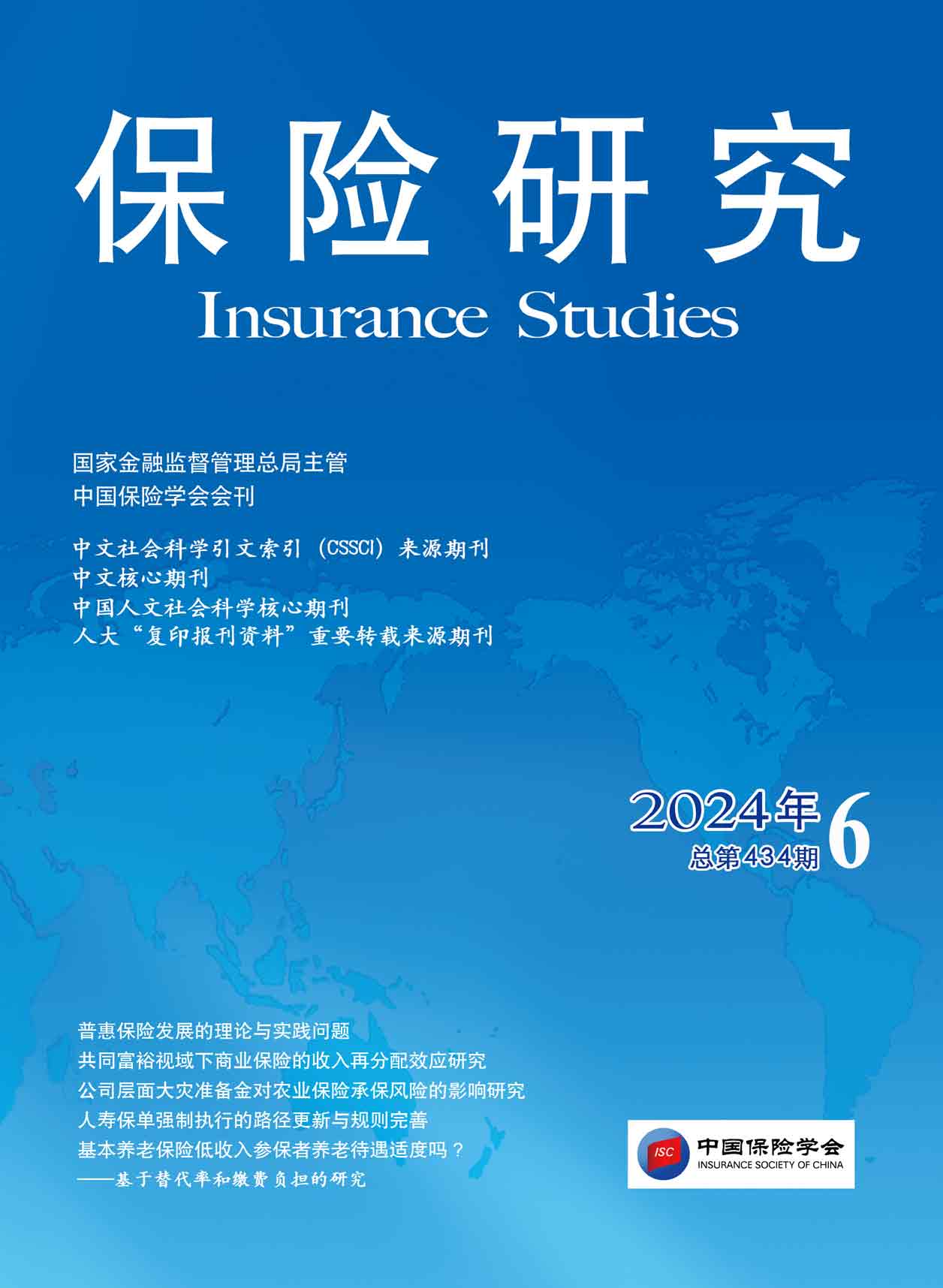
《保险研究》20240603-《政府引入商业保险参与社会治理的典型模式与应用路径研究》(高凯、丁少群)
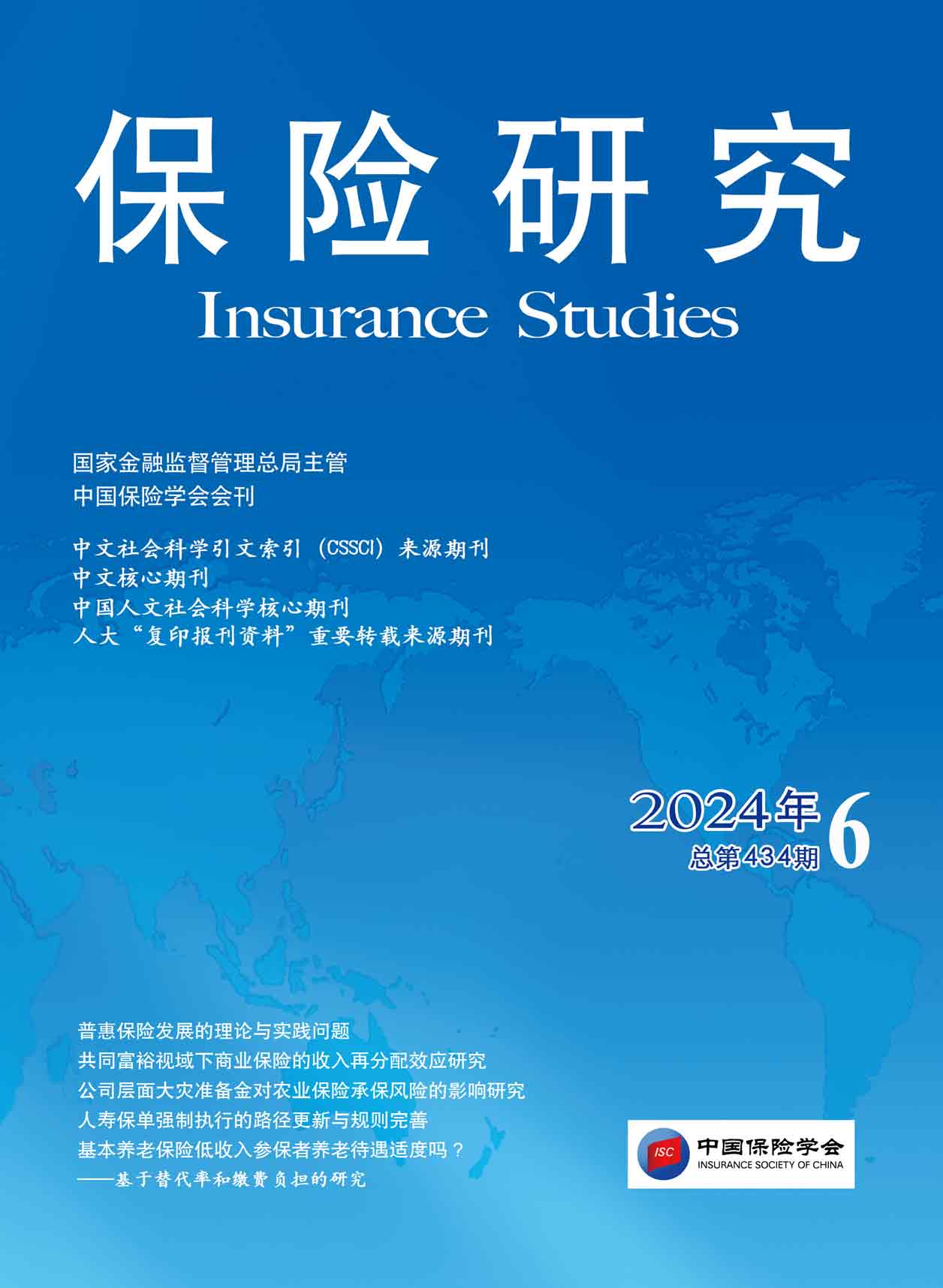
《保险研究》20240604-《险资持股与上市公司经营风险》(王莉、王国军)

《保险研究》20240605-《基于R-Vine Copula的财险公司经济资本度量与分散化效益研究》(郑敏、郑苏晋、刘皖)

《保险研究》20240606-《政策性农业保险对农户绿色生产的影响研究——基于4省小麦种植户的调查数据》(张旭光、柴智慧)
